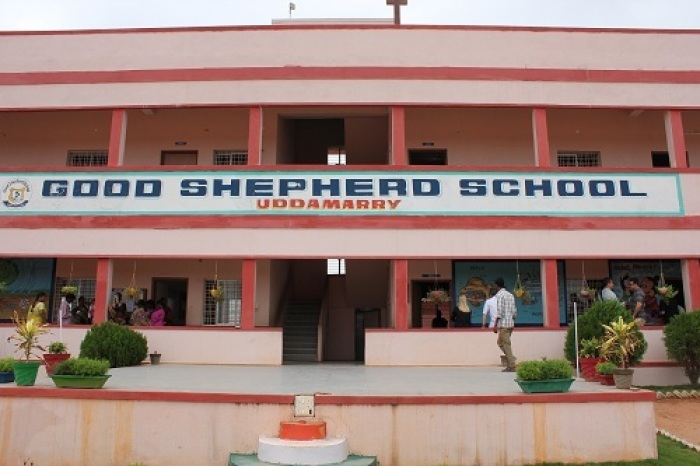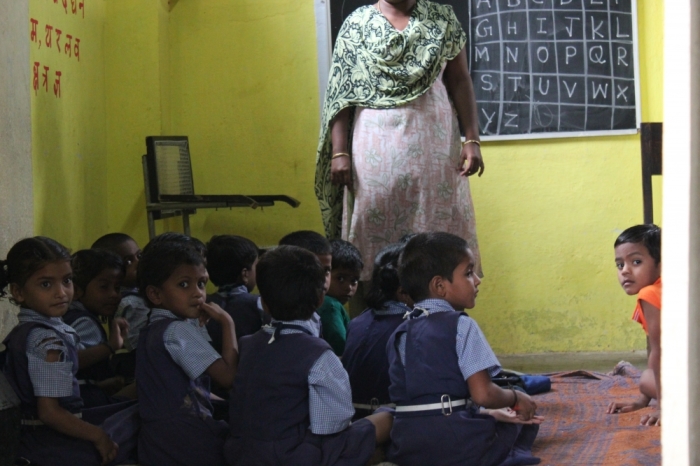The Forgotten People of India - Part 1: God Touches the 'Untouchables'
The Christian Post recently had the opportunity to travel to India to observe the work Christians are doing throughout the country to help empower a societal group that has been neglected for the better part of recorded human history. This is the first part of a four part series detailing their work.
"You were born in the image of God." For many Christians across the globe this is a well-known and common Biblical verse from Genesis 1:27, but for Kumar Swamy and his family this would be the most radical and life-changing message they had ever heard. Though the words are simple, the power contained in them was enough to have them dedicate themselves to Jesus in an instant and compel them to spend their lives fighting for the oppressed, as well as spreading His name to everyone who would listen. Swamy and his family are Dalits.
There are over 250 million Dalit men, woman and children who are abused, neglected and exploited in what is widely considered the world's largest human rights atrocity. Currently, there is an effort to empower Dalits with education and through the grace of Jesus Christ, but the greatest challenge is a suppressive socio-religious order which has been engrained into the psyche of the Indian people.
India is home to the world's second largest population, with about 1.2 billion people, but it is also home to the largest and most historically oppressed group in history, the Dalits. Dalits comprise a societal group that has been oppressed, degraded and discriminated against for over 2,500 years. This group falls outside the predominant Indian social hierarchy, which subjects them to enumerated hardships, extreme discrimination and enslavement.
"Broken," "outcast" and "crushed" are all words that have been used to describe the Dalits. The name connotes a dehumanized state of being, allowing upper caste members to justify despicable actions which include forced prostitution, enslavement and perhaps the most harmful, indifference.
Kumar Swamy is one individual committed to bringing Dalits out from under the foot of Indian society and is leading them to Christ. Known as the "Bishop of Bollywood," Swamy is the South India Director for the Dalit Freedom Network (DFN), an organization committed to ending injustices towards Dalits by bringing the power of education to thousands of neglected children.
The DFN has constructed over 100 schools in pursuit of its goal to build 1,000 throughout India. The schools, known as Dalit Education Centers (DEC), provide Dalit children an English-medium education with a Christian world-view perspective, allowing them to hear God's message and more importantly providing an environment free from inequality and abuse.

On the outskirts of Bangalore, in south central India, Swamy revealed that he was not always a Christian. In fact, he grew up a Dalit Hindu in a small village and was routinely subjected to abuse and neglect for the simple fact that he was a Dalit. Dalits have few rights and even less protection within Indian society even though protections were written into the Indian constitution. The majority of Dalits, especially in rural areas, are still considered and treated as if they are subhuman.
Having grown up in a social structure centered on the caste system, Swamy understands the importance of educating Dalits as a way to provide them with the tools to break free of a truly repressive social structure. But it is not just giving the opportunity to Dalits that will correct the centuries of torment, because as Swamy explains, these thoughts have been rooted in to the minds of Dalits to the point that they subconsciously express their own relegated status.
Many Indians confess that it is fairly simple for most in the country to identify if a person is a Dalit. For instance, upper castes generally have a fairer skin complexion while Dalits tend to have a darker one. A person's name is also used as a source of identification; from what family a person is from, as well as the region or village they are from. Dalits usually live in rural areas and slums and their name identifies them as such.
Aside from their names, the body language of a Dalit projects this "not-worthy" image which is also used to segregate them from the rest of Indian society. They are not bold, rarely making eye contact when they come in contact with another Indian. Their arms are usually folded behind them as they hang their head low, conveying a sense of subservience, in what is the ultimate expression of an oppressed person.
The caste system has dominated the societal landscape in India for centuries and it is that system that has come to place an inhuman label on those thought not worthy of being considered human.
There are four levels that comprise the caste system in India. The upper castes are called Brahmins or priests, followed by Kshatriyas, who are warriors and rulers. Of the lower two castes, the Vaisyas are comprised of skilled workers, while the Sudras are comprised of unskilled workers. The Dalits, however, are not found in the caste system; instead they make up what's called a scheduled class, which is below the last rung of the Indian social hierarchy and renders them "untouchable."
Dalits are continually abused and subjected to inhumane treatment, while the absence of education and human dignity are just two of the agents used to suppress the life and mind of a Dalit.
Swamy still vividly remembers his time in the government school where he was routinely bullied and discriminated against by both students and teachers because he was a Dalit. Made to sit on the floor away from his teachers, Swamy recalled being ostracized from the rest of the class. That treatment was not limited solely to the classroom; outside of school other upper caste children refused to come within in an arm's reach of him or any other Dalit.
Somberly, Swamy said that not much has changed since he was in school. Dalits are still subjected to discrimination and abuse from upper castes, both in school and out. Even today Dalits are forbidden to live in certain parts of villages and are not allowed to drink or obtain water from the same spicket as upper castes in some villages. In some extreme cases Dalits must even prevent their shadow from falling upon an upper caste or risk abuse.
The Dalit Children who are able to attend school nowadays do so at government sponsored schools where they are subjected to considerable hardships including "discrimination, discouragement, exclusion, alienation, physical and psychological abuse, and even segregation, from both their teachers and fellow students," according to a 2006 report from the United Nations.

Dalits are not alone in their daily struggle to gain recognition and equality. There is a movement to empower Dalits and to return human dignity to their lives, but they continue to be subjected to atrocities long outlawed in western countries, which is why Swamy has dedicated his life to helping Dalits after the power of the Holy Spirit became implanted in him.
Swamy described the moment he was placed on a path towards Christ which happened when he was 11 on a cricket field. During play he accidently bumped into an upper caste boy, who, upon realizing a Dalit had just touched him, began to degrade and insult him, subjecting him to a tirade of abuse. Still holding his cricket bat and acting on impulse, Swamy hit the boy across the face, drawing blood.
The news was massive, traveling through the small village quickly. Soon Swamy was confronted by relatives of the boy who demanded he leave the village. His family was faced with severe threats and felt there was no other option but to flee their home.
His family was initially angry with him, but Swamy knew they understood. Gazing upon the countryside from the window of the van we were traveling in, Swamy with a cheeky grin, calmly noted that he was lucky to leave the village with only a few bumps and bruises.




























